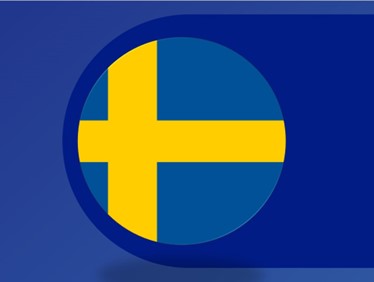Search results (544)
Skip results of view News and highlights

The EURO2024 is currently underway in Germany, with 24 countries competing to be Europe's best football nation, while millions of Europeans watch on television or at the stadium. Matches are won by scoring more goals, but data also plays a crucial role. Teams analyse data to strategise against opponents and select the best players. For instance, Liverpool and its former coach Jürgen Klopp famously used data to create a team that won the Champions League . Open football data boosts fan engagement through interactive visualisations and live scores, enhances scouting, provides tactical insights
On 12 July 2024 from 10.00 to 11.30 CEST , join us for the panel discussion ‘ Data controllership and anonymisation' . This session hosted by data.europa Academy , provides the audience with information about how nonpersonal data can become personal data, how controllership is assessed, and how these legal requirements impact open data sharing. Personal data is protected by law, for example the EU General Data Protection Regulation (GDPR). Personal data can be defined as ‘ information relating to an identified or identifiable natural person ’. These types of laws ensure that personalised data

During the month of June, data.europa Academy hosted three webinars bringing together more than 1 000 participants. These webinars were hosted for data-providers and users who want to extend their knowledge by joining the discussion on open data practices. Firstly, on 14 June, the data.europa.eu team hosted the webinar ‘ Exploring the potential of high-value datasets ’, which started off with a presentation on the findings from the High-value datasets (HVD) best practices in Europe report. After presenting the key highlights of the report, a roadmap is suggested for the Member states to comply

Sweden’s data portal is supporting the ambition for open data to become a strategic societal resource, which business, society, and the public sector can use. The portal has reached a total of 17 000 datasets, which are supplied by 335 different organisations, and this number is frequently updated on their website. These datasets contribute to Sweden’s ambition to foster innovation power to help society move forward. The data portal is divided in 13 different categories, with the government and public sector being the biggest one (7 000 datasets), followed by population and society (6 900

On June 30, 1889, the Inter-Parliamentary Union was created. Since 2018, we celebrate the International Day of Parliamentarism on that very same day, a commemoration that is dedicated to appreciating parliaments and to reflect on the goals they have reached in becoming more representative and become future ready. The International Day of Parliamentarism holds particular relevance to the European Union (EU) elections, which just concluded this month . As citizens across member states casted their votes, 720 parliament members play a pivotal role in shaping EU policies and legislation. By

The O pen Data Best Practices in Europe report puts a spotlight on countries that have significantly improved their scores in the Open Data Maturity (ODM) assessment of 2023 and identifies the drivers for their success. This benchmarking exercise is performed by data.europa.eu , to evaluate the maturity of the participating countries in the field of open data. In 2023, a total of 35 countries participated in the assessment, including the 27 EU Member states, three European Free Trade Association countries, and five candidate countries. In this report, the countries that are identified as the

The European Commission is committed to protecting and fostering democracy as the EU faces challenges like election interference, threats against journalists and the spread of manipulative information . After introducing the European Democracy Action Plan in 2020, the Commission adopted the Defence of Democracy Package in 2023. These initiatives promote citizen and civil society participation in policymaking to empower them. This participation is enabled by the Citizen’s Engagement Platform of the Commission. Here, citizens can engage and debate with each other on EU policies, which are then

Ireland’s commitment to open data is demonstrated by the Open Data Portal, data.gov.ie , a central point for information via public sector datasets. The portal offers over 18,000 datasets from 147 publishers, helping to make governmental data accessible, reusable, and available in free open formats. Furthermore, it serves as an ecosystem for sharing data about a broad range of topics, like the legal system and public safety , health , and regions and cities . Ireland’s journey with open data started in 2014 and the Irish government is dedicated in being a European leader in open data . Ireland

Data citation is crucial in the scientific research process, providing proper acknowledgment of sources and facilitating easier identification and reproduction of research results. By citing data, researchers can track the impact of data, promote its discoverability, and reward data creators. Though citing data is not a new practice, using persistent identifiers has gained importance due to the increased need to track citations and understand their impact. To support researchers in effectively citing data, data.europa.eu offers a comprehensive guide on data citation: Data Citation: A Guide to
On 28 June 2024 from 10.00 to 11.30 CEST , join us for the webinar 'Stories from the Use Case Observatory - Volume 2 '. This session delves into the significant effects of open data reuse across Europe, part of the ongoing Use Case Observatory project. The Use Case Observatory , active from 2022 to 2025, evaluates the economic, governmental, social, and environmental effects of open data. Monitoring 30 selected reuse cases, the project aims to highlight the transformative potential of open data. Building on the first volume published in 2022, this second volume assesses 13 reuse cases
